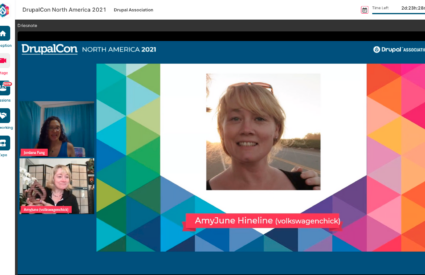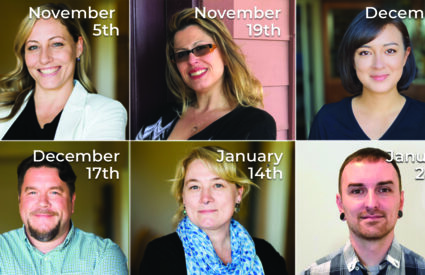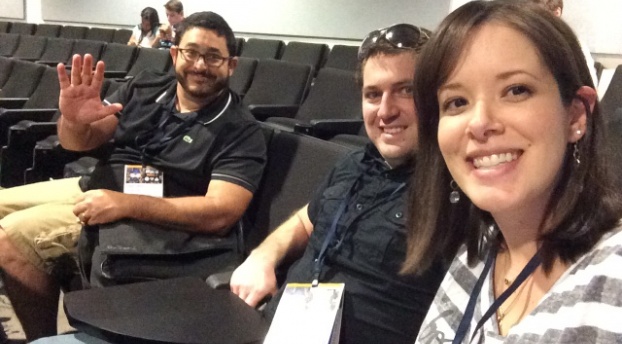
As a frequent sponsor of Drupal conferences and events, we feel strongly about personal and professional development and are glad to see our team members take advantage of these opportunities to build their own skillset and to share their newly acquired knowledge with the rest of the Kanopi team.
This past weekend, we were happy to be one of the sponsors of Florida DrupalCamp and to have two of our team members, Kim Murphy, a Drupal designer and themer and Andy Klepner, Drupal and WordPress engineer represent Kanopi. Not only did they finally get to meet each other in person, which is always a treat since we are a remote shop, they attended some very informative and engaging sessions.
This year’s Florida DrupalCamp was attended by an estimated 200 front-end themers, back end developers and drupal engineers – about 100 more than expected. The sessions were diverse in terms of topic and skill level – but all commonly focused on working with Drupal 8.
For those who were not able to make it, a wrap up of some of our favorite sessions:
May the GIT Force Be With You – How to become a jedi master of GitHUB was one of Kim’s favorite sessions, “As someone who uses GITHub, I know as much as I need to know to work with my team, but it was great to learn more about this tool and advanced uses of it! I cannot wait to start using it more!”
Faster and Smarter Drupal 8 Development – With a resounding “WOW” from our team, this session discussed a different (and surprisingly straightforward) approach to building sites in Drupal faster using modern techniques and tools. Traditionally when building a website, the process is to build the site then QA test, whereas a different (and potentially time-saving) approach is to test frequently throughout the entire build process. There were many helpful tools and tips provided in this session, including:
- webpagetest.org – described as the “bread and butter” of site testing, it provides a more overall comprehensive report over the other site testing tool google insights (which some say is a bit ‘google-opinionated’ in their results).
- “A-Syncing” – the technique that allows javascript to load concurrently with your site’s code to improve the speed of your site. No more waiting for javascript to load before the rest of your website’s elements load.
- Pic Module/Elements – Responsive images can cause a lot of issues rendering on both desktop and mobile, resulting in slower site speed. Using the picture element within the core of Drupal 8 – or the pic module in Drupal 7 – will help render your responsive images quicker and improve your site’s speed.
Cat Gifs. Also Front End Development – As intriguing as the title is, so was the session! The session explored the workflow process of front end development and how to standardize processes using Gulp, Grunt and Suzy (oh my)! Our key takeaway was to use Gulp over Grunt as it is much faster. And a shout out to how creative this topic and session was presented.
Rapid Prototyping with Kalatastic – This was another of Kim’s favorite sessions. It explored a design + content first approach to prototyping to create clean, beautiful sites that users enjoy and clients can easily collaborate on and understand. Our key takeaway was a new process to implement for prototyping: creating the visual design, developing a static html prototype with javascript and css, obtaining the client’s approval, then passing to development to build the site around the prototype. Rather than the traditional workflow of creating the visual design, passing off to a developer to build out the content types and site, then passing back to a designer to theme.
Debugging, Profiling and rocking out with Browser-Based Developer Tools – A favorite of developer Andy, this session “blew his mind” on using the Chrome Based “Inspector” tool for modern front-end development. The session explored the ways to use Inspector for running testing and showcased all the functionality including the timeline and looking at your site’s load time and code that could be causing the slow speed. Our key takeaway was a super useful tool within inspector regarding CSS code.
Have you ever needed to look at a site’s or module’s CSS code and when using Inspect, it displays in one long line of code?
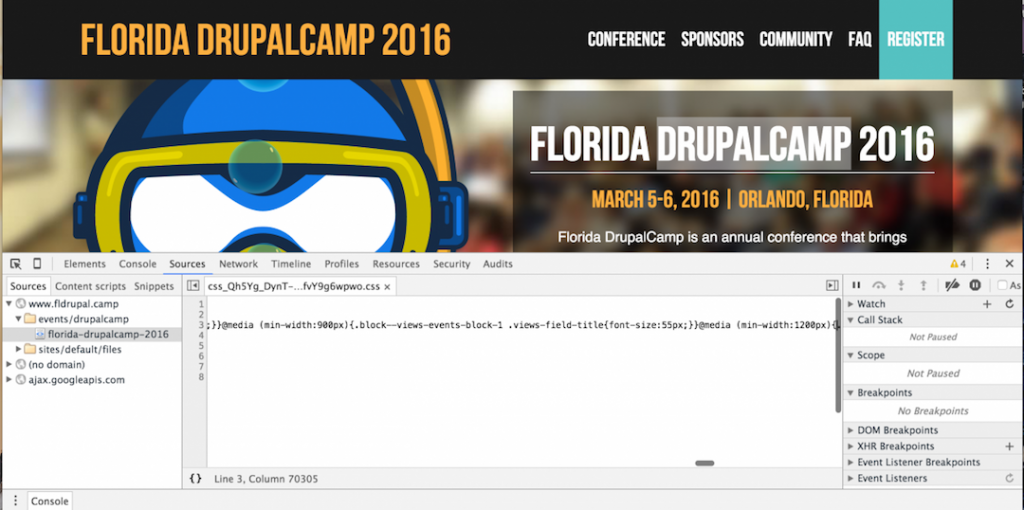
Click on the { } on the bottom of the frame and the CSS code properly formats to make viewing and/or editing easier.
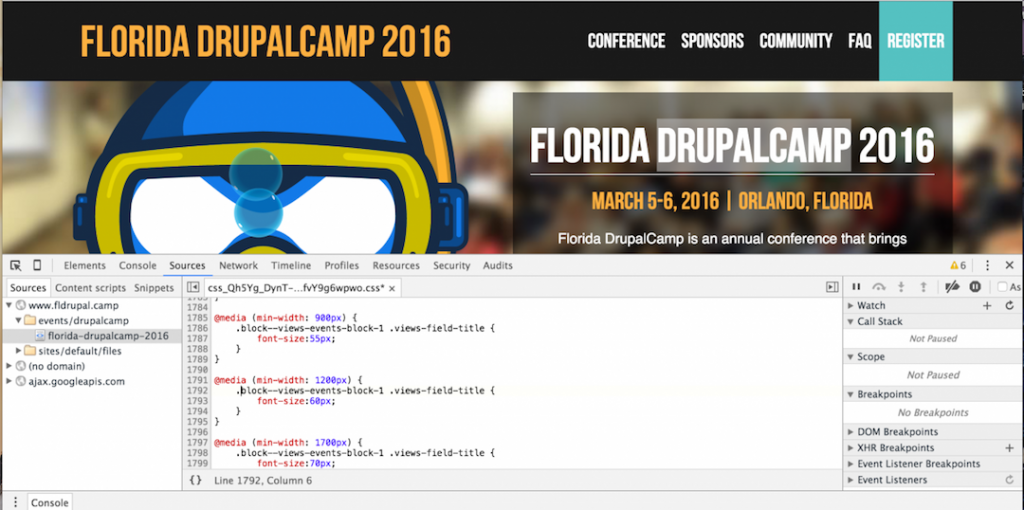
‘Mic Drop.’
So that’s it for us this time. The conference season is in full swing. Look for us at the upcoming NTEN Conference in San Jose, Drupal Camp Stanford and DrupalCon NOLA among others.



